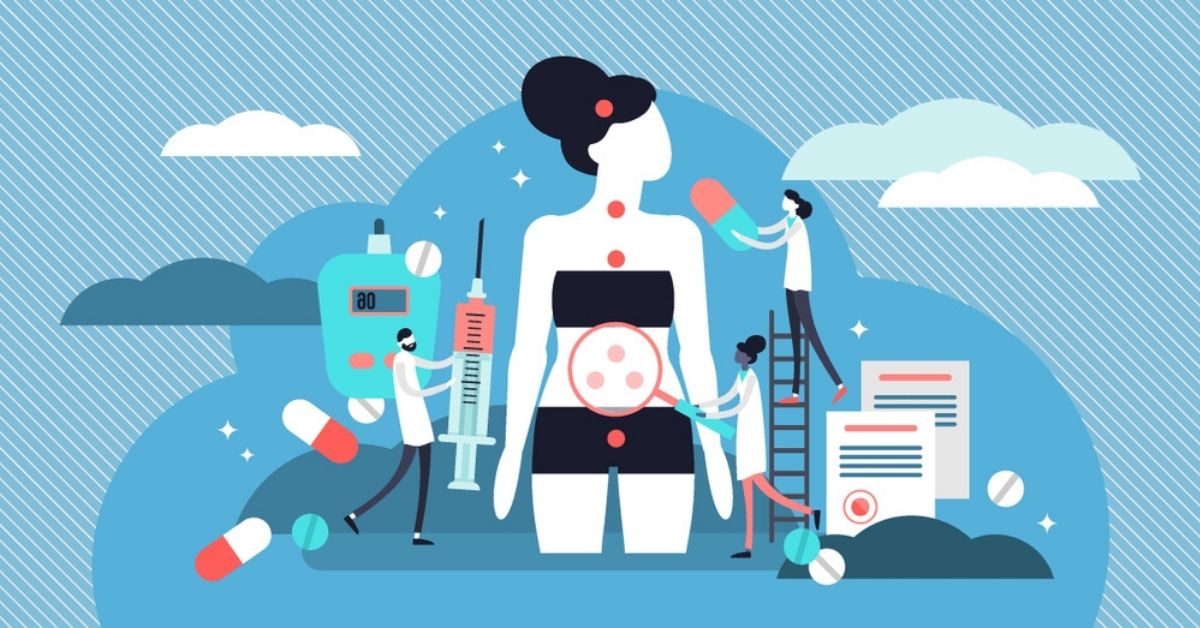
HCG: The Natural Hormone for Weight Loss and Fertility
Hey there, fitness enthusiasts! Are you curious about HCG and its potential benefits? Well, you’re in luck because we’ve got all the juicy details for you right here. In this article, FitGAG is going to break down everything you need to know about HCG, from its definition to its potential risks and benefits. So, get ready to be informed, entertained, and maybe even a little surprised.
What is HCG?
What is HCG? If you’ve heard this term being thrown around in conversations, you might be wondering what it is and what it does. HCG stands for human chorionic gonadotropin, which is a hormone that is naturally produced by the placenta during pregnancy.
Definition Of HCG
HCG is a glycoprotein hormone that is made up of alpha and beta subunits. The beta subunit is unique to HCG and is what allows it to be detected in pregnancy tests. HCG is responsible for maintaining the corpus luteum during the first trimester of pregnancy, which in turn produces progesterone to support the developing fetus.
How HCG Works In The Body?
HCG works by binding to the same receptors as luteinizing hormone (LH) and follicle-stimulating hormone (FSH), which are both involved in the regulation of reproductive processes. HCG stimulates the production of estrogen and progesterone in women, and testosterone in men. This hormone can also be used to induce ovulation in women who have fertility problems.
Natural And Synthetic Sources Of HCG
HCG is naturally produced by the placenta during pregnancy, but it can also be found in smaller amounts in the pituitary gland of both men and women. In addition to natural sources, synthetic forms of HCG are also available. These can be used for various medical purposes, including fertility treatments and weight loss programs. Synthetic HCG is usually given by injection, but it can also be administered orally or as a nasal spray.
HCG is a hormone that plays an important role in reproductive processes, and it can be produced naturally by the body or taken as a synthetic form for medical purposes. Understanding what HCG is and how it works is the first step in exploring its potential benefits and risks. As we move forward in this discussion, we will dive deeper into the various uses of HCG and the potential benefits and risks associated with them.
Uses of HCG
Now that we’ve covered what HCG is and how it works, let’s dive into the various uses of this hormone. HCG is used for a range of medical purposes, including fertility treatments, weight loss programs, hormone replacement therapy, and other medical uses.
Fertility Treatments
One of the primary uses of HCG is in fertility treatments. HCG can be used to induce ovulation in women who have difficulty getting pregnant. It is often used in combination with other fertility drugs, such as clomiphene citrate, to increase the chances of pregnancy. HCG can also be used in men to increase sperm production.
Weight Loss Programs
HCG has also been used as a component of weight loss programs. The HCG diet involves a low-calorie diet coupled with daily injections of HCG. The idea behind the diet is that the HCG injections help to suppress appetite and promote fat loss. However, there is little scientific evidence to support the effectiveness of the HCG diet for weight loss, and many experts warn against its use due to potential risks and side effects.
Hormone Replacement Therapy
HCG can also be used as a form of hormone replacement therapy in men and women. In men, HCG can stimulate the production of testosterone, which can help to alleviate symptoms of low testosterone, such as low sex drive, fatigue, and muscle loss. In women, HCG can be used to support hormone balance during menopause.
Other Medical Uses
In addition to its primary uses in fertility treatments, weight loss programs, and hormone replacement therapy, HCG has been used for a variety of other medical purposes. These include the treatment of delayed puberty in boys, the prevention of testicular shrinkage during testosterone replacement therapy, and the treatment of cryptorchidism (undescended testicles) in young boys.
HCG has a range of medical uses, including fertility treatments, weight loss programs, hormone replacement therapy, and other medical uses. While its effectiveness for some of these purposes is still under debate, HCG remains an important tool in the medical field for many patients. As with any medical treatment, it is important to discuss the potential risks and benefits with a healthcare professional before considering the use of HCG.
Benefits of HCG
Now that we’ve covered the uses of HCG, let’s take a closer look at the potential benefits of this hormone. While some of the claims about the benefits of HCG are still under debate, there is some evidence to suggest that HCG may offer a range of health benefits for certain patients.
Increased Fertility
One of the most well-known benefits of HCG is its ability to increase fertility in both men and women. By inducing ovulation in women and increasing sperm production in men, HCG can help couples struggling with infertility to conceive.
Weight Loss
While the effectiveness of the HCG diet for weight loss is still under debate, some proponents of the diet claim that HCG injections can help to suppress appetite and promote fat loss. However, it is important to note that the safety and effectiveness of the HCG diet have not been fully established, and many experts caution against its use.
Boosted Testosterone Levels
HCG has been used as a form of hormone replacement therapy in men, as it can stimulate the production of testosterone. This can help to alleviate symptoms of low testosterone, such as low sex drive, fatigue, and muscle loss.
Improved Energy And Mood
Some studies have suggested that HCG may have a positive effect on energy levels and mood. This may be due to its ability to stimulate the production of hormones such as testosterone and estrogen, which can have a positive impact on mood and energy levels.
Other Potential Benefits
In addition to its well-known benefits for fertility and hormone replacement therapy, HCG has been studied for its potential benefits in a range of other health conditions. These include the treatment of depression, the prevention of muscle wasting in people with HIV, and the treatment of certain types of cancer.
HCG may offer a range of potential benefits for certain patients, including increased fertility, weight loss, boosted testosterone levels, improved energy and mood, and other potential benefits. However, it is important to discuss the potential risks and benefits of HCG with a healthcare professional before considering its use for any purpose. As we move forward in this discussion, we will explore the potential risks and side effects of HCG in more detail.
Risks and Side Effects of HCG
As with any medication or treatment, HCG use comes with a range of potential risks and side effects. It’s important to understand these risks before considering using HCG for any purpose. Here are some of the most common risks and side effects associated with HCG:
- Injection site reactions: HCG is typically administered via injection, which can cause irritation, pain, and redness at the injection site. In rare cases, infection can occur.
- Headaches and dizziness: Some people may experience headaches and dizziness while using HCG.
- Ovarian hyperstimulation syndrome (OHSS): OHSS is a potentially serious condition that can occur when the ovaries become swollen and painful. It can cause fluid buildup in the abdomen and chest, as well as difficulty breathing.
- Multiple births: HCG is sometimes used in fertility treatments, which can increase the risk of multiple births, such as twins or triplets.
- Other potential risks and side effects: Other possible side effects of HCG use include mood swings, depression, fatigue, acne, and breast tenderness.
While these risks and side effects can be concerning, it’s important to remember that not everyone who uses HCG will experience them. Additionally, many of these risks can be mitigated by working with a healthcare professional who can monitor your progress and adjust your treatment plan as needed.
It’s important to be aware of the potential risks and side effects of HCG before considering using it for any purpose. If you do choose to use HCG, be sure to work closely with a healthcare professional and report any side effects you experience. By taking a careful, measured approach, you can potentially reap the benefits of HCG while minimizing the risks.
HCG and Weight Loss
If you’re looking to lose weight, you may have heard of the HCG diet. The HCG diet is a weight loss program that involves using HCG, either through injections, drops, or pills, along with a very low calorie diet.
HCG Diet
The HCG diet is a low calorie diet that typically lasts between 26 and 43 days. During this time, you will consume only 500 to 800 calories per day, which is far below the recommended daily intake for most people. You will also take HCG supplements, which are supposed to help you burn fat and suppress your appetite.
Evidence For And Against The Effectiveness Of HCG In Weight Loss
There is conflicting evidence about the effectiveness of the HCG diet for weight loss. Some studies have shown that people who follow the HCG diet do lose weight, but the weight loss is likely due to the calorie restriction rather than the HCG itself. Other studies have found no difference in weight loss between those who take HCG and those who do not.
Furthermore, there are concerns about the safety of the HCG diet. While the low calorie diet itself can lead to nutrient deficiencies and other health problems, there are also potential risks associated with taking HCG supplements, such as injection site reactions, headaches, and dizziness.
Potential Risks And Side Effects Of HCG In Weight Loss Programs
In addition to the risks associated with the HCG diet, there are potential risks and side effects of using HCG for weight loss in general. Some of these include:
- Blood clots
- Restlessness and irritability
- Fatigue
- Depression
- Swelling in the feet, ankles, or hands
It’s important to note that the U.S. Food and Drug Administration (FDA) has not approved HCG for weight loss, and some health experts caution against using it for this purpose.
Before starting any weight loss program, including the HCG diet, it’s important to speak with your healthcare provider. They can help you determine if the program is right for you and help you identify potential risks and side effects. Additionally, they can provide you with guidance on safe and effective weight loss strategies.
HCG and Fertility Treatments
HCG is widely used in fertility treatments and has shown promising results in helping couples conceive. In this section, we will discuss the use of HCG in fertility treatments, the potential risks and side effects associated with it, and the success rates of HCG in helping couples achieve pregnancy.
Overview Of HCG Use In Fertility Treatments
HCG is commonly used in fertility treatments to stimulate ovulation in women. The hormone mimics the effects of luteinizing hormone (LH), which triggers the release of eggs from the ovaries. HCG is often used in combination with other medications to increase the chances of ovulation and conception. It may also be used to treat male infertility by boosting testosterone levels and improving sperm count.
Risks And Side Effects Of HCG In Fertility Treatments
Like any medication, HCG comes with potential risks and side effects. Some of the common side effects associated with HCG in fertility treatments include:
- Headaches and fatigue
- Mood swings and irritability
- Injection site reactions
- Ovarian hyperstimulation syndrome (OHSS), a condition in which the ovaries become swollen and painful
- Multiple births
In rare cases, HCG may also cause more serious side effects such as blood clots or ovarian torsion.
Success Rates Of HCG In Fertility Treatments
The success rates of HCG in fertility treatments vary depending on the underlying causes of infertility and the age of the couple. In general, HCG is most effective in women with irregular or absent periods and those who are undergoing intrauterine insemination (IUI). The success rates of IUI with HCG range from 10% to 20% per cycle.
For women undergoing in vitro fertilization (IVF), HCG is typically used to trigger ovulation before egg retrieval. The success rates of IVF with HCG range from 30% to 50%, depending on factors such as the woman’s age, the quality of the eggs and sperm, and the number of embryos transferred.
It is important to note that the success rates of HCG in fertility treatments can vary widely and are not guaranteed. Other factors such as the woman’s overall health and lifestyle habits may also play a role in the success of fertility treatments.
HCG is a commonly used hormone in fertility treatments that has shown promising results in helping couples conceive. However, it is important to discuss the potential risks and side effects with a healthcare professional before starting any treatment. Couples should also consider the success rates of HCG in their specific situation and make an informed decision about their fertility treatment options.
Conclusion
If you’re considering using HCG for fertility treatments, weight loss programs, or any other medical purposes, it’s important to weigh the potential risks and benefits carefully. As we’ve discussed in this article, HCG can be effective in certain contexts, but it’s not without its potential drawbacks. So, before making any decisions, be sure to discuss HCG use with a healthcare professional to ensure that you make an informed choice. Thanks for tuning in to FitGAG’s breakdown of HCG – we hope you found it informative and engaging!











